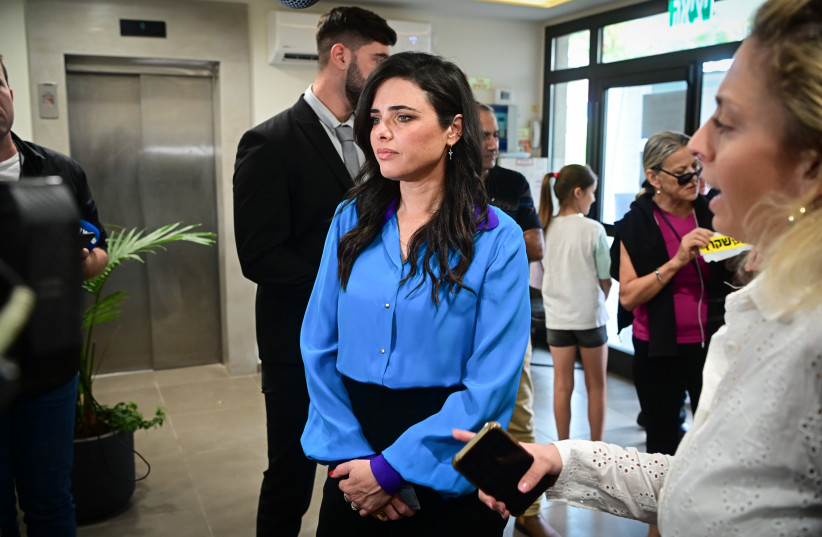It is clear that the government's judicial reforms will not pass in their initial version, and therefore the coalition should only continue them if there is wide agreement with the opposition, former interior and justice minister Ayelet Shaked said in an interview with Khaled Abu Toameh at The Jerusalem Post's Annual Conference in New York on Monday.
"In Israel, we do not have a constitution, and, to be honest, we are not going to, as the society is too diverse and polarized, and we will not agree."
Ayelet Shaked
"When I was minister of justice, I changed the High Court [of Justice] within the existing rules, and took the political steps in order to do it. Today the High Court is more balanced, as it has a liberal camp and a conservative camp," Shaked said.
"The current government abandoned the reform; we all understand it is not going to happen. What is good is for the coalition and opposition to find a common path," such as legislating an agreed-upon Basic Law: The Legislature, she said .
"In Israel, we do not have a constitution, and, to be honest, we are not going to, as the society is too diverse and polarized, and we will not agree," Shaked added.
That is why the reforms should be carried out in "wide agreement, step by step," and the coalition should understand the fears of the reforms' opponents.

Ayelet Shaked: Israel-Diaspora bond remains strong
Regardless, while sometimes there are tensions between Israel and the Diaspora, the bond is strong and will remain strong, Shaked opined.
The protests earlier this week against Israeli ministers and Knesset members showed more than anything else the tension within Israel, as they were led by Israeli expats. Tensions exist within Israel and within the Diaspora communities, but the ties between the two groups remains strong, she said.
Shaked recalled a conversation she had with a Ukrainian official as interior minister at the outbreak of the Ukraine-Russia war. The official told her that in World War II, the Jews in Ukraine were the most miserable group. However, in this war, they were the most privileged, because they had a Western country to go to, where they immediately received citizenship and benefits. Jews all over the world know that Israel is a second home, Shaked said.
The former minister also said that she believed that the Israel-US relationship would remain good no matter who is in power in either country, since it was based on shared values and interests. As interior minister, she and former prime minister Naftali Bennett worked closely with the Biden administration to advance Israel's joining the visa waiver program, and this was not contingent on the identity of the prime minister, she said.
Asked about reports that the US and Iran were secretly negotiating a new deal over the latter's nuclear program, Shaked claimed that the international community did not do enough to stop Iran from arriving at the current point, where it can acquire a nuclear bomb if it decides to do so.
Finally, asked whether she was planning a comeback to politics, Shaked said, "In politics you can never know what will happen. The current government is stable and will last three or four years, so I have time to have fun and make money."